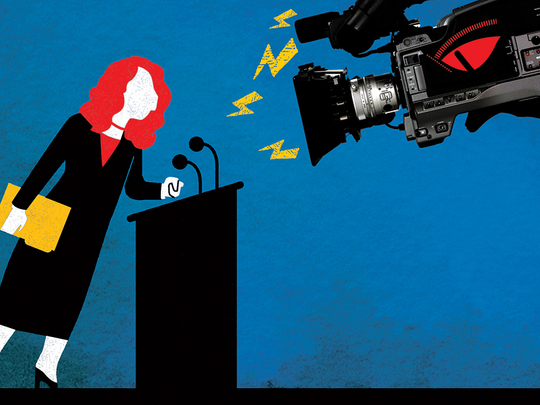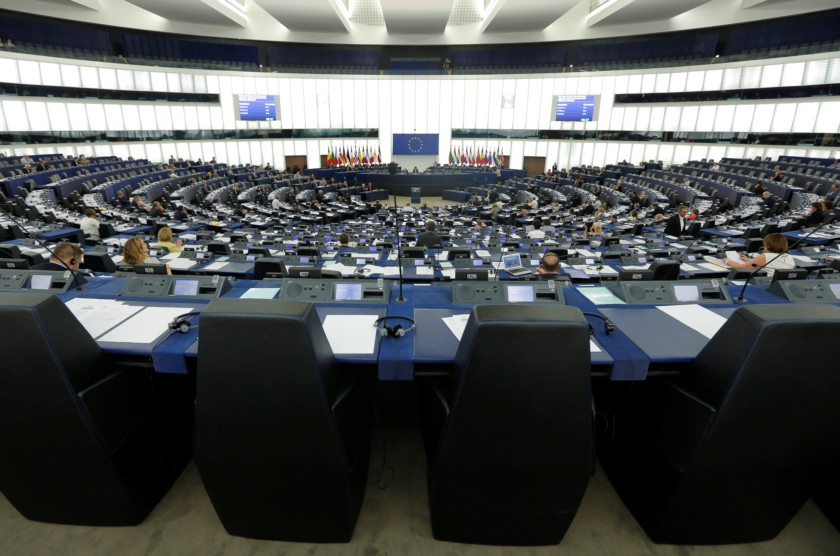
For weeks, months and years, “politician” has been a word more spat out than said. MPs have been depicted as a form of pond life, routinely placed on the lowest rung of the ladder of esteem, trusted less than estate agents and journalists, the butt of every panel show gag, casually assumed to be venal, mendacious, vain, stupid or malevolent.
“They’re all as bad as each other,” we say. “They’re only in it for themselves.” “You can’t believe a word they say.” These complaints are repeated so often, we barely notice them. They’re like moans about the weather, presumed to warrant no disagreement.
But then we are confronted with the fate, and the life, of Jo Cox. We learn that she was a devoted mother of two young children. We see the pictures of her putting shoes on her daughter’s tiny feet. We hear that she fizzed with energy and commitment to those suffering, far away and closer to home. We learn that her friends loved her and hear them break down as they remember her. We see that she burned with a fierce idealism, that she was devoted to her home town, that she wanted to make life better for people other than herself.
And none of that quite fits with what we thought “politician” meant. Yet the funny thing is, this is what most of them are actually like. It’s the dirty little secret of political life: that, yes, there are some politicians who are all about ego and vanity and hogging the camera; but there are countless more who get and seek little public attention, who toil away, knocking on doors, fielding complaints about broken drains and noisy neighbours, who work daytimes, evenings and weekends, and who are rewarded by little thanks — and often a downpour of abuse.
What accounts for this loathing of our elected public servants, the men and women we have chosen to represent us? Some of it they bring upon themselves, to be sure — and there’s no denying that the standing of MPs plummeted after the expenses affair of 2009 (though they were hardly revered before then).
The media have certainly played their part. Think of the interviews conducted as if every politician belongs automatically in the dock, interrogations that proceed on a premise best articulated by Jeremy Paxman: why is this lying liar lying to me?
Social media has intensified this hostility and made it even more sharply personal. The abuse directed at women, whether elected politician or not, who dare to voice an opinion in public, the threats of rape and murder — all of it has further polluted the atmosphere.
We don’t yet know what was in the mind of the man who killed Jo Cox. We cannot locate a specific cause in the nation’s political debate and claim this murder as its direct effect. But we can say this: if you inject enough poison into the political bloodstream, eventually somebody will get sick.
In the early 1990s I watched as it became a staple of US debate that all America’s woes were the fault of the federal government. On the right, it became incontestable to blame “government bureaucrats” for any and every problem. On talk radio, the social media of that era, “government bureaucrats” were assailed daily as the enemy, worthy only of contempt. And then, on April 19 1995, Timothy McVeigh planted a bomb in a building in Oklahoma City filled with government bureaucrats, and killed 168 of them. Perhaps McVeigh was mentally unstable, but that hardly weakens the point: even the mentally unstable hear the conversation around them.
And how has our national conversation sounded in recent weeks? As it happens, before Jo Cox was so brutally murdered I had a plan for the column I would write. Its headline was to be, “Behold the demons we have unleashed.” It was to convey my deep anxiety about the darker loathings stirred by the debate over this week’s EU referendum.
It would have cited the violence in France involving English football fans, who chanted the usual anti-French and anti-German songs but also “[Expletive] off, Europe — we’re all voting out.”
It would have mentioned the incident, witnessed by a Financial Times correspondent, in which England fans threw coins at child beggars in the streets, enjoying the children’s humiliation as they bent down to pick them up. The same fans made one seven-year-old boy down a pint of beer to earn his reward.
You could say those fans would always have behaved that way. But none of us is an island. We take our cues from the signals around us. And the recent signals have included a loathing of the European Union and a resistance to immigration that is clearly heard by many as nothing more than hostility to foreigners.
The poster Nigel Farage unveiled last Thursday morning turned that dog-whistle into a foghorn: under the phrase “breaking point”, it showed a snaking cue of conspicuously dark men, suggesting these were EU migrants descending on Britain. (In fact they were Syrian refugees arriving in Slovenia, with no chance of getting anywhere near Britain.) It was unambiguously racist.
And throughout this campaign, there has been a drumbeat denouncing “the Westminster elite”, castigating all politicians, along with anyone in authority or in a public position of expertise, as either a liar or the corrupt dupe of a wicked Brussels conspiracy.
Perhaps this had nothing to do with the cruelty that deprived two children of their mother last Thursday. Maybe it’s a coincidence that the killer struck at this moment. Maybe it’s a coincidence that he targeted an MP who was a passionate advocate of remaining inside the EU, and whose signature issue had been a campaign to admit Syrians in desperate need of refuge.
Maybe it’s a coincidence that she was a member of a political class that has been reviled for years and with heightened fervour in recent weeks. Maybe it’s a coincidence that she was an advocate for a position depicted by its most fevered opponents as unpatriotic and verging on treason.
We don’t yet know. But what we do know is that this campaign has torn away at a fabric that took years to weave, one that ensured we could argue with each other without challenging the basic legitimacy of our opponents, one that had grown to accept diversity as a strength rather than a threat to be feared, one that allowed us to keep calm and civil even when we disagreed passionately.
Whatever happens this Thursday, it will take time to repair that fabric. But repair it we must. For what we have learnt this week is that the veil that separates civilisation from mayhem is thin. The tragedy is that it took the death of a devoted, admired and adored woman to teach us that lesson.
— Guardian News & Media Ltd
Jonathan Freedland is a weekly columnist and writer for the Guardian. He has also published eight books, including six best-selling thrillers, the latest being The 3rd Woman.











